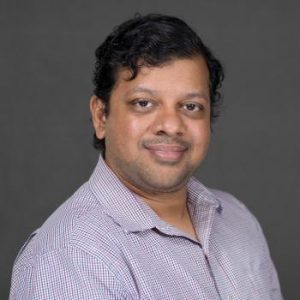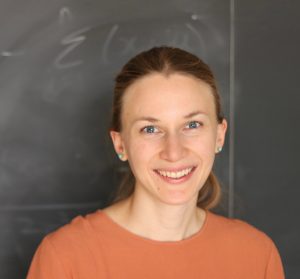Energy Atlas: using AI to map and reconstruct the energy system
Wednesday 16th September 2021
The grid is undergoing a profound transformation with increased penetration of renewables, the adoption of storage and electrification of transportation, and the rise of connected consumers that produce electricity and shape their consumption and the fast adoption of novel power control and monitoring technologies among various other major trends. These trends are increasing dramatically the complexity of managing the grid by interconnecting networks (transportation, power, water), increasing variability and uncertainty in production and consumption and creating more granular and real-time feedback loops in the system. At the same time, systems of the future will generate a massive amount of different types of data, and offer opportunities to support decision making at multiple time and spatial scales. In this talk we address how to utilize this data to map and reconstruct the electric power grid with high resolution. We combine a variety of approaches including computer vision applied to satellite imagery, graphical models applied to power measurements and natural language processing applied to building information to obtain detailed and dynamic resource maps that include significantly more assets than existing data collection efforts. We conclude the presentation demonstrating how such high resolution data can reveal critical system trends and highlight the disparity of the impact of new technologies in the grid.
 Ram Rajagopal is an Associate Professor of Civil and Environmental Engineering at Stanford University, where he directs the Stanford Sustainable Systems Lab (S3L), focused on large-scale monitoring, data analytics and stochastic control for infrastructure networks, in particular, power networks. His current research interests are in coordinating distributed energy resources at scale and improving the resiliency of the electricity system to climate change through data-driven planning and sequential stochastic optimization. He holds a Ph.D. in Electrical Engineering and Computer Sciences and an M.A. in Statistics, both from the University of California Berkeley, Masters in Electrical and Computer Engineering from University of Texas, Austin and Bachelors in Electrical Engineering from the Federal University of Rio de Janeiro. He is a recipient of the NSF CAREER Award, Powell Foundation Fellowship, Berkeley Regents Fellowship and the Makhoul Conjecture Challenge award. He holds more than 30 patents and several best paper awards from his work and has advised or founded various companies in the fields of sensor networks, power systems, and data analytics.
Ram Rajagopal is an Associate Professor of Civil and Environmental Engineering at Stanford University, where he directs the Stanford Sustainable Systems Lab (S3L), focused on large-scale monitoring, data analytics and stochastic control for infrastructure networks, in particular, power networks. His current research interests are in coordinating distributed energy resources at scale and improving the resiliency of the electricity system to climate change through data-driven planning and sequential stochastic optimization. He holds a Ph.D. in Electrical Engineering and Computer Sciences and an M.A. in Statistics, both from the University of California Berkeley, Masters in Electrical and Computer Engineering from University of Texas, Austin and Bachelors in Electrical Engineering from the Federal University of Rio de Janeiro. He is a recipient of the NSF CAREER Award, Powell Foundation Fellowship, Berkeley Regents Fellowship and the Makhoul Conjecture Challenge award. He holds more than 30 patents and several best paper awards from his work and has advised or founded various companies in the fields of sensor networks, power systems, and data analytics.
AI and Climate Change
Thursday 17th September 2021
Climate change is one of the most pressing issues of our time, and addressing it will require rapid, systemic approaches involving technology, policy, and society. Artificial intelligence (AI) and machine learning (ML) offer new techniques that are driving innovation across many sectors, and as such have a multi-faceted relationship with climate change. This talk will provide an overview of how different AI technologies can play a role in supporting climate change efforts, for example by tracking deforestation, optimizing heating systems, or speeding up climate models. We will also cover how AI can affect climate action in negative ways, and discuss the energy consumption associated with the technology. AI can deliver great value when scoped, developed, and deployed responsibly, but it is not a silver bullet and requires interdisciplinary and multi-stakeholder collaboration. This talk will conclude with discussing practical considerations for aligning AI with climate change goals, deploying technologies effectively, and designing the efforts of public and private decision-making in this area.

Lynn Kaack is Assistant Professor of Computer Science and Public Policy at the Hertie School. Her work focuses on methods from statistics and machine learning to inform climate mitigation policy across the energy sector, and on climate-related AI policy. She is a co-founder and chair of the organization Climate Change AI, and a member of the Austrian Council on Robotics and Artificial Intelligence. Previously she was Postdoctoral Researcher and Lecturer in the Energy and Technology Policy Group at ETH Zürich and obtained a PhD from Carnegie Mellon University.

